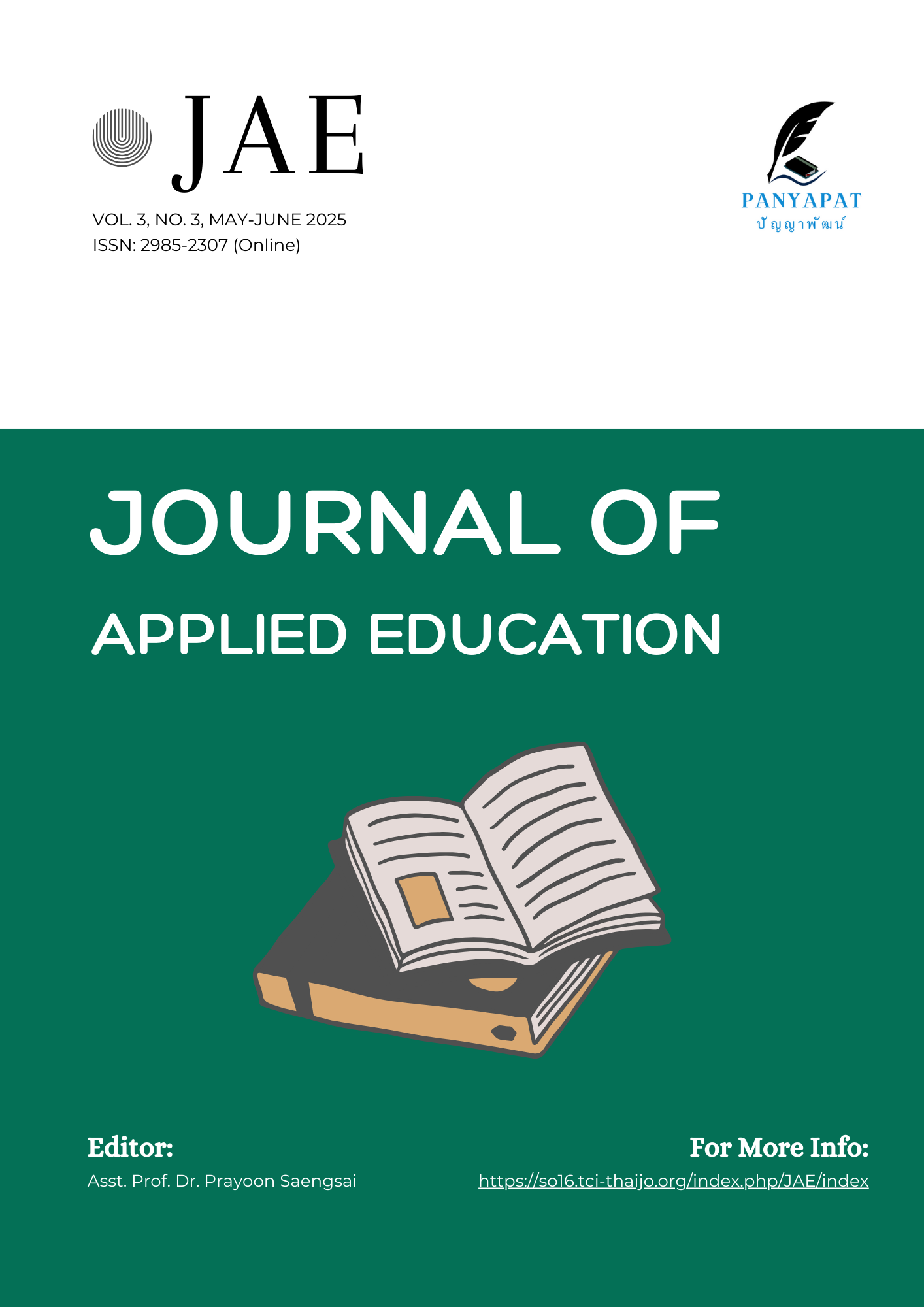Guidelines The Internal Supervision in Educational Based on The Principle in The Kalyanamitta - Dhamma 7 in Educational Opportunity Expansion School Under Nakhon Si Thammarat Primary Educational Service Area Office 4
Main Article Content
Abstract
The purpose of this research is to (1) study the state of internal supervision in educational opportunity expansion schools under the Nakhon Si Thammarat Primary Educational Service Area Office 4, (2) explore guidelines for internal supervision in schools according to the principles of the Seven Aspects of Good Friendship in educational opportunity expansion schools, and (3) present and evaluate the guidelines for internal supervision in schools based on the principles of the Seven Aspects of Good Friendship in educational opportunity expansion schools. This study employs a qualitative research methodology, which includes (1) studying the current state using interviews through in-depth interviews with 15 key informants, (2) studying guidelines using in-depth interviews with 5 key informants, and (3) presenting guidelines through focus group discussions with 7 experts. Data were analyzed using inductive analysis. The research findings revealed that: 1) the state of internal supervision in educational opportunity expansion schools shows that supervision is conducted in an unstructured manner, lacking a clear supervision calendar, thus requiring schools to plan and implement systematic and continuous supervision; 2) the guidelines for internal supervision in educational opportunity expansion schools consist of studying the current situation, problems, and needs, planning supervision, creating media and supervision tools, implementing supervision, and evaluating and reporting results, integrating internal supervision with the principles of the Seven Aspects of Good Friendship, with steps including planning, implementation, monitoring and evaluation, and development and improvement; and 3) the results of presenting the guidelines for internal supervision in schools according to the principles of the Seven Aspects of Good Friendship in educational opportunity expansion schools show that the experts in the focus group unanimously agree that these guidelines are appropriate, feasible, and beneficial.
Article Details

This work is licensed under a Creative Commons Attribution-NonCommercial-NoDerivatives 4.0 International License.
References
พีรยา ทรัพย์หล่ำ. (2562). แนวทางการดำเนินงานนิเทศภายในโรงเรียนของโรงเรียนขนาดเล็กในจังหวัด นครสวรรค์ สังกัดสำนักงานเขตพื้นที่การศึกษามัธยมศึกษา เขต 42. (ครุศาสตรดุษฎีบัณฑิต, มหาวิทยาลัยราชภัฏนครสวรรค์).
ภัณฑิรา ธิตะปัน. (2564). การบริหารตามหลักกัลยาณมิตรธรรม 7 ของผู้บริหารโรงเรียนการกุศลของวัดในพระพุทธศาสนา จังหวัดขอนแก่น. (ครุศาสตรมหาบัณฑิต, มหาวิทยาลัยมหาจุฬาลงกรณราชวิทยาลัย).
สันติ หัดที. (2563). การพัฒนาระบบการนิเทศภายในด้านการจัดการเรียนรู้โดยใช้ชุมชนการเรียนรู้ทางวิชาชีพ สำหรับโรงเรียนขยายโอกาสทางการศึกษา. (การศึกษาดุษฎีบัณฑิต, มหาวิทยาลัยมหาสารคาม).
สายวินิตย์ ดวงสนาม. (2561). การนิเทศภายในสถานศึกษาของโรงเรียนขยายโอกาสทางการศึกษา สังกัดสำนักงานการศึกษาประถมศึกษาสระบุรี เขต 2. (ศึกษาศาสตรมหาบัณฑิต, มหาวิทยาลัยราชมงคลธัญบุรี).
สำนักงานเขตพื้นที่การศึกษาประถมศึกษานครศรีธรรมราช เขต 4. (2566). คู่มือการพัฒนาคุณภาพการศึกษา. นครศรีธรรมราช: สำนักงานเขตพื้นที่การศึกษาประถมศึกษานครศรีธรรมราช เขต 4.
สำนักงานคณะกรรมการการศึกษาขั้นพื้นฐาน. (2556). การนิเทศภายในสถานศึกษา. กรุงเทพฯ: คุรุสภา.
สำนักเลขาธิการคณะรัฐมนตรี. (2562). พระราชบัญญัติการศึกษาแห่งชาติ (ฉบับที่ 4) พ.ศ. 2562. สืบค้นจาก https://www.ratchakitcha.soc.go.th/DATA/PDF/2562/A/057/T_0049.PDF.
Strauss, A., & Corbin, J. (1998). Basics of qualitative research: Techniques and procedures for developing grounded theory. (2nd ed.). Washington D.C.: Sage Publications.

